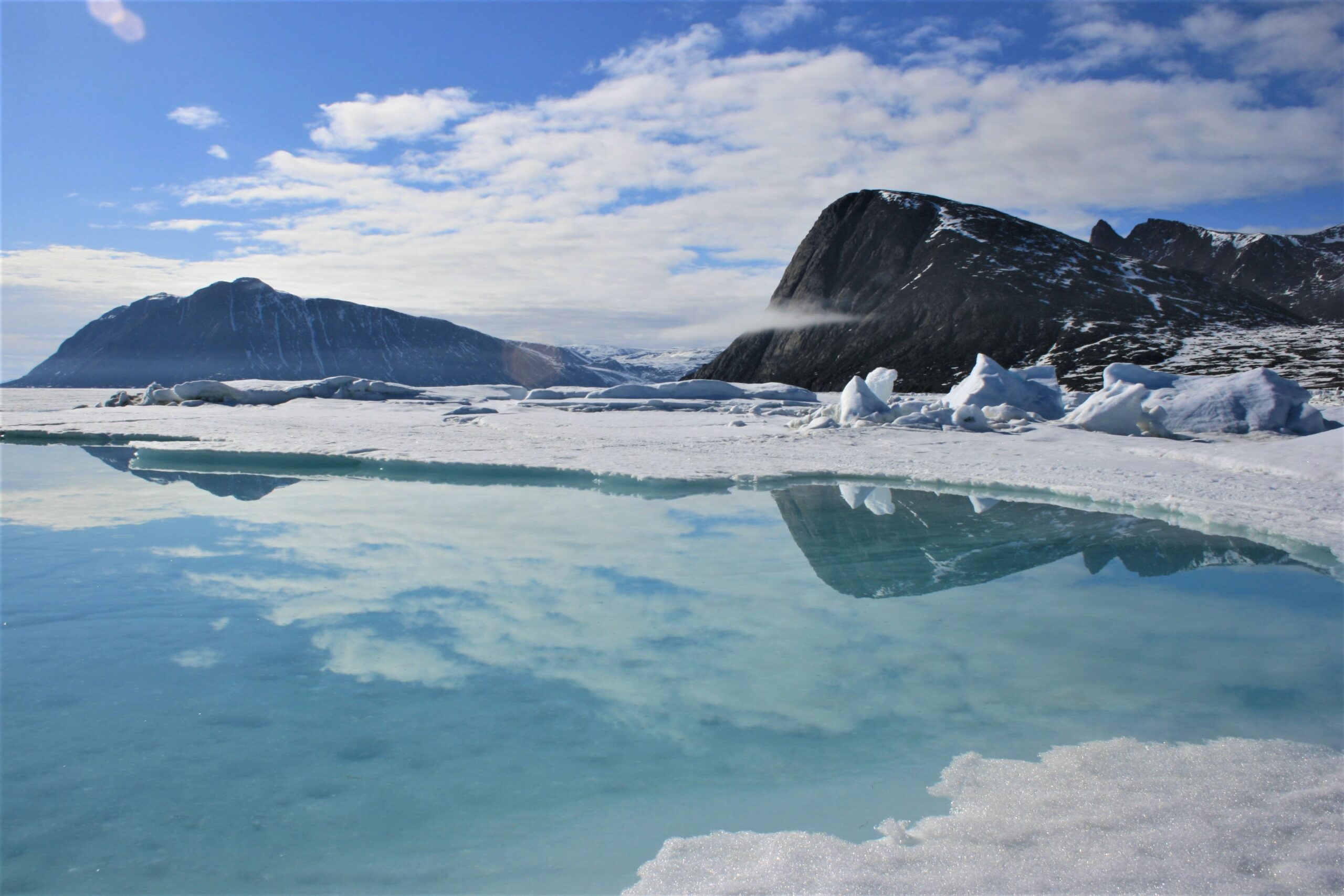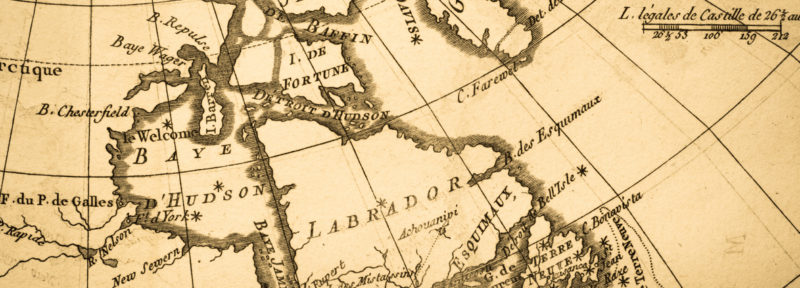Why Oceans North Supports Federal Carbon Price Legislation
A pond of meltwater in Tallurutiup Imanga, Nunavut.
Ilitariyauyuq: Chris Debicki / Oceans North
Arctic sea ice is currently at its second-lowest extent ever recorded, a danger sign that comes after 14 consecutive years of decline. On land, record-setting wildfires swept across the Arctic tundra and peatlands of Siberia this summer, releasing huge amounts of sequestered carbon. Waves of increasing size are combining with permafrost thaw to erode coastlines and threaten homes and businesses in the shoreline communities of Inuit Nunangat. Meanwhile, influxes of water from the Atlantic and Pacific oceans are altering the temperature, chemistry and biology of the Arctic Ocean. By the end of the century, the Arctic could face a staggering 12-degree increase in temperature.
Although climate change is a global issue, nowhere is it more visible than in the Arctic. That’s why Oceans North is committed to addressing climate change as part of our mission to conserve the marine environment in partnership with Indigenous and coastal communities. The Arctic and its peoples are shouldering the most adverse consequences of climate change despite being least responsible for activities that create the problem. Almost all of Canada’s greenhouse gas emissions (GHG) are generated in other parts of the country.
Taking action to reduce greenhouse gas emissions and promote healthy marine environments must be part of a holistic approach to preserving the Arctic. If the federal government is not able to ensure all Provinces do their part to regulate GHG emissions, the Arctic as we know it will disappear. That’s why we’re intervening in this week’s Supreme Court case on the constitutionality of the federal carbon pricing legislation.
Some provinces are arguing that they can be trusted to sufficiently regulate emissions without a federal backstop and that the federal legislation is a gross overreach of federal power. They say establishing national minimal standards that are integral to reducing nationwide GHG emissions are not a matter of national concern. But GHG emissions know no jurisdictional boundaries and are clearly a matter of national concern. Not only do they accumulate in our atmosphere, they are a form of marine pollution. More than 30 per cent of GHG emissions are absorbed directly into the oceans, resulting in adverse impacts like acidification. More than 90 per cent of the heat from global warming is absorbed by our oceans. The consequences should the provinces fail to reduce GHG emissions are of immense national concern. Unsupported concerns of federal overreach should not be used to stymie a necessary solution to this unprecedented problem.
There are also sources of emissions that are for the most part beyond provincial jurisdiction, and that clearly show the importance of the federal government’s ability to regulate, tax and incentivize behaviours. Shipping, for example, accounts for roughly 3 per cent of GHG emissions globally; air travel makes up 2.5 percent and is set to triple by 2050. Industrial activities such as bottom trawling also disturb existing sources of sequestered carbon, further exacerbating the problem. It is up to the federal government and its international partners to set standards that will reduce those emissions while incentivizing innovation.
Climate change presents an existential threat to our country and requires immediate national action. While some may argue we can afford to wait, climate change has already arrived in the Arctic. Warming temperatures, variable weather patterns and decreasing sea ice are altering the marine ecosystem and affecting food security, travel safety, and infrastructure in Arctic communities.
Canada’s federal structure must be able to ensure that all provinces are doing their part in order to prevent irreparable harm to the Arctic environment and the people who live there. Our Constitution must not be used to incapacitate our ability to respond as a nation to this global existential threat.





